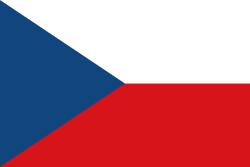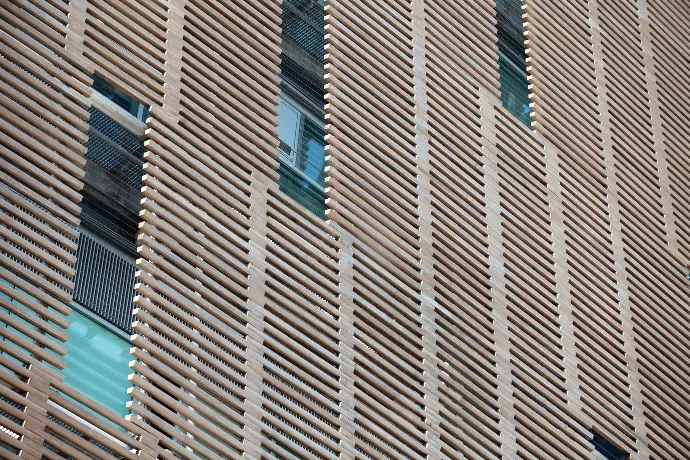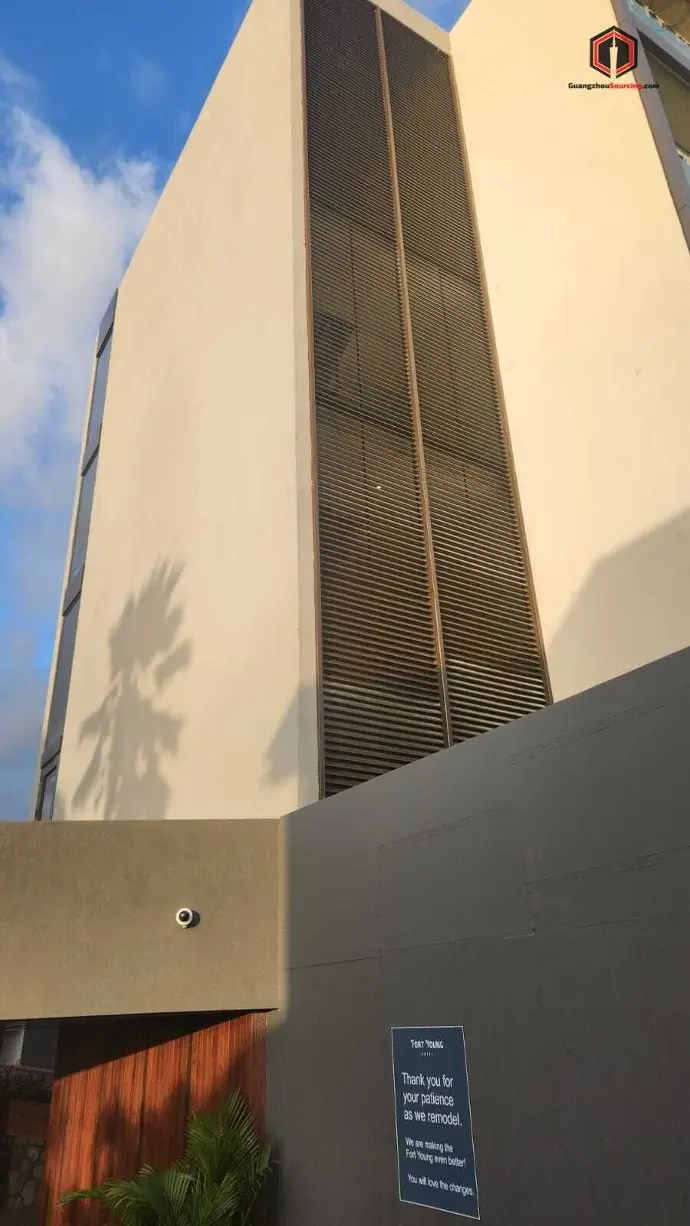Understanding the Chinese louver market: Key players and trends
The Chinese louver market offers a wide range of options for sourcing louvers, making it essential to understand the key players and current trends in order to make informed decisions.
- Key Players: China is home to several major manufacturers of louvers, including companies such as ABC Louver Co., XYZ Shades Ltd., and DEF Sun Control Solutions. These companies have established their presence in the industry by offering high-quality products at competitive prices.
- Trends: One notable trend in the Chinese louver market is the increasing demand for eco-friendly and energy-efficient solutions. The government's focus on sustainability has resulted in a growing preference for louvers that reduce energy consumption while still providing effective shading solutions. Additionally, there is an ongoing shift towards automated louvers that can be controlled remotely, allowing for greater convenience and customization. It is important to stay updated with these trends when sourcing louvers from China to ensure you offer cutting-edge solutions to your clients.
Evaluating the benefits and drawbacks of sourcing louvers from China
Benefits of sourcing louvers from China
- Cost-effective: Sourcing louvers from China can often be more affordable due to lower manufacturing costs and labor rates, allowing businesses to save on expenses.
- Wide range of options: Chinese manufacturers offer a diverse selection of louvers, providing businesses with the flexibility to choose the specific design, materials, and features that best suit their needs.
- Efficiency in production: China has developed a strong infrastructure for manufacturing, resulting in efficient production processes that help deliver high-quality louvers within shorter lead times.
Drawbacks of sourcing louvers from China
- Language barriers: Communication challenges arising from language differences can slow down the procurement process or lead to misunderstandings in design specifications or quality requirements.
- Quality control concerns: Some Chinese manufacturers have faced issues related to product quality and consistency. It is crucial for buyers to thoroughly research potential suppliers and conduct regular inspections to ensure compliance with international standards.
- Logistics and transportation: Shipping products from China may involve longer transit times, increasing the likelihood of delays or disruptions along the supply chain. This can impact project timelines and overall customer satisfaction.
Navigating the Chinese supplier landscape: Tips for finding reliable manufacturers
Research and Due Diligence: Essential Steps for Supplier Verification
Before engaging with any potential Chinese manufacturer, it is crucial to conduct extensive research. Relying solely on search engine results and online directories may not provide enough information about the reliability of a supplier. A more thorough approach involves checking industry-specific trade shows, reaching out to professional networks or contacts in the field, and requesting references from previous customers.
To ensure you find a reliable manufacturer, devote time to conducting due diligence. This process should involve verifying their business licenses and certifications, assessing their production facilities for quality control measures, as well as scrutinizing their financial stability. It may also be advantageous to visit the factory in person or hire a third-party inspection agency to gauge their capabilities thoroughly.
Communication Is Key: Establish Strong Relationships
Building open lines of communication with potential suppliers is paramount when navigating the Chinese supplier landscape. Clear communication facilitates smooth transactions and prevents misunderstandings that can lead to costly mistakes. Efforts should be made to establish trust through regular interactions via phone calls, emails, or video conferences.
Having detailed discussions about product specifications early on helps avoid miscommunication later in the process. Providing clear instructions regarding packaging requirements ensures products arrive at their destination intact while adhering to your standards.
Quality control measures when sourcing louvers from China: Ensuring product standards
Quality Control Measures for Louver Sourcing in China
When sourcing louvers from China, it is important to implement strict quality control measures to ensure that the products meet your standards. Here are a few key steps to consider:
Supplier Verification:
Before partnering with a supplier, thoroughly vet their credentials and reputation. Look for suppliers that have experience manufacturing louvers and have positive reviews from previous clients. Conduct a factory visit if possible to assess their production capabilities and quality control processes.Sample Evaluation:
Request samples of the louvers you intend to source before placing any large orders. Inspect these samples carefully for defects, such as uneven finishes or misaligned slats. Ensure they meet your specifications regarding size, material, and functionality.Production Monitoring:
Regularly monitor the production process at the supplier's facility to maintain quality control throughout the manufacturing phase. This can involve conducting regular inspections at different stages of production, including checking raw materials, assessing workmanship during assembly, and inspecting finished products before packaging.Testing & Certification:
To further verify product standards, consider testing louver samples through independent third-party laboratories accredited for relevant certifications such as ISO 9001 or ANSI/ASQ Z1-4 inspection standard compliance.
By implementing these quality control measures when sourcing louvers from China, you can ensure that your products meet your standards while maintaining an efficient and cost-effective supply chain process.
Negotiating prices and terms: Strategies for cost-effective sourcing in China
When it comes to negotiating prices and terms for sourcing louvers in China, there are several strategies that can help you secure a cost-effective solution:
- Do your research: Before entering into negotiations, gather information on the market price of louvers in China. This will give you a baseline for determining what is a fair price. Look at different suppliers and compare their prices, quality, and reputation.
- Be prepared to negotiate: Negotiation is expected in Chinese business culture, so be ready to haggle over price and terms. Start with an initial offer below what you are willing to pay, as this allows room for concessions while still reaching your desired outcome.
- Leverage competition: Use the fact that there are many suppliers in China to your advantage. Contact multiple manufacturers or trading companies and let them know you are shopping around for the best deal. This creates competition among the suppliers which can drive down prices.
- Consider long-term partnerships: Building relationships with reliable suppliers can lead to lower costs over time through volume discounts or better payment terms.
- Focus on total cost rather than just unit price: While getting a low unit price is important, consider other factors such as shipping fees, import duties, quality control expenses, and potential hidden costs when evaluating quotes from different suppliers.
By employing these negotiation strategies when sourcing louvers in China, you can maximize your chances of securing a cost-effective solution without compromising on quality or reliability.
Logistics and shipping considerations when importing louvers from China
Logistics and Shipping Considerations when Importing Louvers from China
When importing louvers from China, there are several important logistics and shipping considerations to keep in mind. These factors can greatly impact the efficiency and cost-effectiveness of your sourcing process.
- Product Packaging: Ensure that the louvers are adequately packaged for international shipping to prevent any damage during transit. Proper packaging materials, such as sturdy crates or pallets, should be used to protect the louvers from moisture, vibrations, and other potential hazards.
- Documentation Requirements: Familiarize yourself with the necessary documentation needed for importing goods from China, including invoices, packing lists, bills of lading or airway bills, and import permits or licenses. It is crucial to accurately complete these documents to avoid delays or penalties at customs.
- Freight Forwarder Selection: Choosing a reliable freight forwarder is vital for smooth transportation of your imported louvers. Consider factors such as their experience in handling shipments from China specifically, their network of carriers and agents in both countries, and their ability to provide competitive rates.
- Incoterms: Understand Incoterms (International Commercial Terms) that define responsibilities between buyers and sellers regarding shipment costs and risks during transport. Selecting the appropriate Incoterm will help clarify who is responsible for arranging transportation arrangements such as insurance coverage or loading/unloading fees.
- Shipping Method: Decide on an optimal shipping method based on your time frame requirements and budget constraints - options include sea freight (affordable but slower), air freight (faster but more expensive), or a combination of both called intermodal transport.
Properly managing logistics considerations when importing louvers can help ensure efficient delivery while minimizing unforeseen costs or delays in receiving your ordered products.
Overcoming language and cultural barriers in the sourcing process
Overcoming Language and Cultural Barriers in the Sourcing Process
When sourcing louvers in China, it is crucial to overcome language and cultural barriers for a smooth and efficient process. Here are some tips to help you navigate these challenges:
- Translation support: Utilize translation services or hire bilingual professionals to ensure effective communication between you and your Chinese suppliers. Clear understanding of specifications, expectations, and quality requirements is essential.
- Cultural awareness: Familiarize yourself with Chinese business etiquette and customs to build strong relationships with your suppliers. This includes respecting hierarchy, addressing individuals by their formal titles, and being mindful of gift-giving traditions.
- Patience and flexibility: Understand that doing business in China may require more time due to cultural differences such as indirect communication styles or lengthy negotiations. Be patient, adaptable, and willing to compromise when necessary.
Remember that overcoming language and cultural barriers is crucial for successful sourcing in China. By taking these steps, you can establish effective relationships with Chinese suppliers that lead to efficient and cost-effective solutions for sourcing louvers.
Building long-term partnerships with Chinese louver suppliers: Best practices
When sourcing louvers from China, it is essential to establish strong and lasting relationships with local suppliers. These partnerships can lead to benefits such as better pricing, improved product quality, and reliable delivery times. Here are some best practices for building long-term relationships with Chinese louver suppliers:
- Understand the cultural nuances: Take the time to learn about Chinese business customs and etiquette. This includes understanding concepts like guanxi (personal connections) and mianzi (face), which play a significant role in establishing trust and maintaining good relations.
- Focus on effective communication: Clear communication is crucial when working with suppliers in China. Ensure that specifications, expectations, and deadlines are fully understood by both parties through open dialogue and written documentation.
- Visit potential partners in person: Whenever possible, make an effort to visit your potential suppliers in China before making any commitments or placing orders. This face-to-face interaction will help you evaluate their credibility, production capabilities, infrastructure, as well as build rapport with key personnel.
By following these best practices for building long-term partnerships with Chinese louver suppliers, businesses can enhance their sourcing strategies for efficient and cost-effective solutions while ensuring smooth collaboration throughout the supply chain journey.
Legal and regulatory compliance in importing louvers from China
Legal and Regulatory Compliance in Importing Louvers from China
When sourcing louvers from China, it is crucial to understand the legal and regulatory compliance requirements. Here are some key considerations:
- Import Duties - Importing louvers from China may attract certain import duties, which add to the overall costs. It is important to research and understand the applicable duty rates for louvers in your country to accurately estimate the total cost of importing.
- Quality Standards - Ensure that the imported louvers meet relevant quality standards set by international organizations or industry-specific regulations. Conduct thorough due diligence on suppliers and request certifications or test reports as evidence of compliance.
- Product Safety - Verify that the imported louvers comply with safety regulations specific to your industry or region, such as fire safety codes or building standards. Non-compliance with these regulations can result in costly penalties or delays at customs.
- Intellectual Property Protection - Protect your intellectual property rights when sourcing from China by registering trademarks, patents, or industrial designs before engaging in business transactions. Implement measures to prevent unauthorized use or replication of your designs.
- Customs Formalities - Familiarize yourself with customs procedures related to importing products into your country, including documentation requirements and labeling specifications for packaging materials such as size labels, warning labels, and country-of-origin indications.
By understanding and adhering to legal and regulatory compliance requirements when importing louvers from China, you can minimize risk while ensuring a smooth procurement process.
Managing risks in the Chinese sourcing process: Mitigating challenges and uncertainties
When sourcing louvers in China, it is crucial to manage the inherent risks of the procurement process effectively. To mitigate challenges and uncertainties, consider the following strategies:
- Thorough due diligence: Conduct extensive research on potential suppliers before engaging in business negotiations. Verify their credentials, visit their facilities, and evaluate their production capabilities to ensure they meet your quality standards.
- Establish clear requirements: Clearly communicate your specifications and expectations regarding product quality, materials used, dimensions, packaging, delivery schedules, and pricing terms with suppliers. This helps minimize misunderstandings or miscommunication that may lead to complications later on.
- Implement a robust supplier selection process: Develop a comprehensive selection criterion based on factors such as price competitiveness, track record of delivering high-quality products consistently within deadlines, supplier's reputation for ethical business practices.
By rigorously applying these practices throughout the sourcing journey from identifying potential suppliers to placing orders; you can significantly reduce risks associated with Chinese sourcing while ensuring efficient cost-effective solutions for acquiring louvers products.







